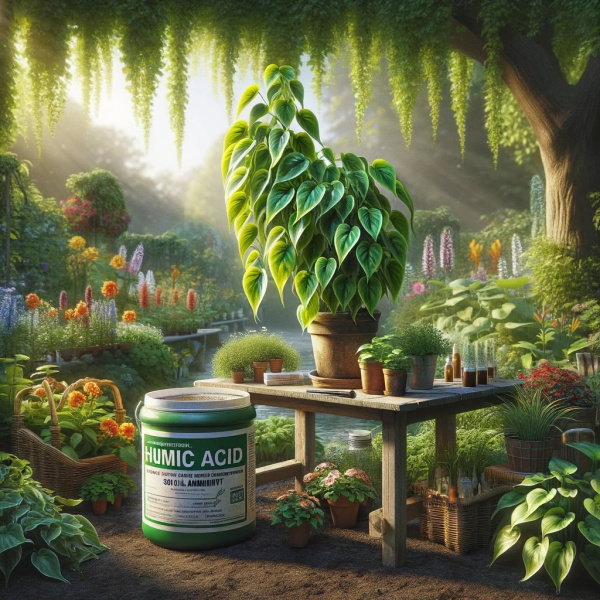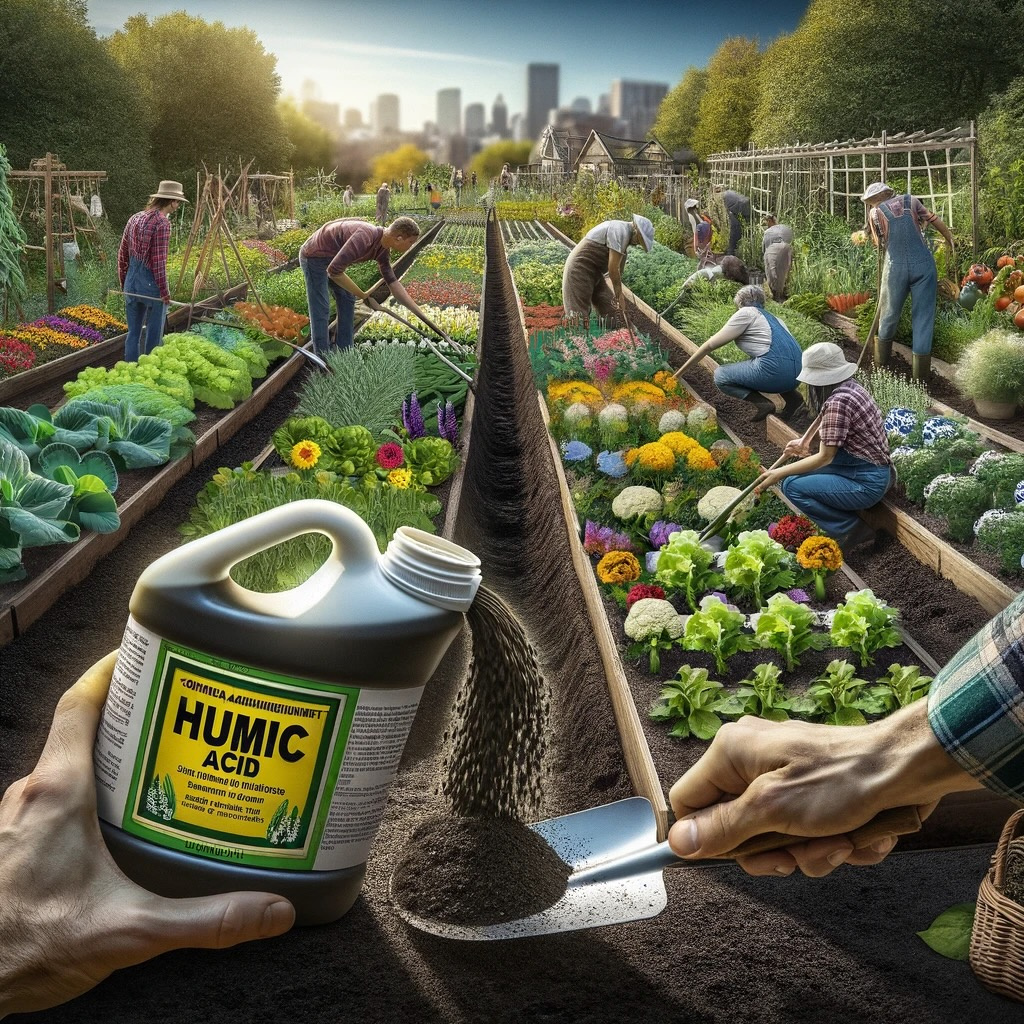
Humic Acid Introduction
Humic acid, a key component of humus—the dark, organic material that forms in soil when plant and animal matter decays—has gained popularity as a vital soil amendment for enhancing soil quality and plant growth.
This natural compound improves soil structure, nutrient availability, and water retention, offering a sustainable approach to gardening and farming.
This guide will delve into the benefits of humic acid, its role in soil nutrition and plant health, practical application methods, compatibility with various plants and soil types, and its contribution to environmental sustainability.

Humic Acid Key Benefits
Incorporating humic acid into garden soil provides several transformative benefits:
- Enhanced Soil Structure: Humic acid improves soil structure, making it more friable and enhancing root penetration.
- Increased Nutrient Uptake: It enhances the availability of nutrients to plants, facilitating efficient uptake by binding to nutrients that might otherwise leach away.
- Water Retention: By improving soil structure, humic acid enhances water retention capabilities, reducing the need for frequent watering.
- Stimulated Microbial Activity: Encourages the growth of beneficial microorganisms, contributing to a healthier soil ecosystem.

Humic Acid Nutritional Profile
While humic acid itself does not provide nutrients, its presence significantly influences nutrient dynamics in the soil.
It has a unique capacity to chelate, or bind, nutrients, making them more accessible to plant roots.
This process not only improves the efficiency of existing nutrients in the soil but also maximizes the benefits of any added fertilizers, reducing waste and enhancing plant nutrition.

How to Use Humic Acid
Applying humic acid to your garden is straightforward, with several methods depending on the product form (liquid, granular, or powder):
- Soil Amendment: For granular or powdered forms, apply 2-5 pounds per 100 square feet and work it into the top 6-8 inches of soil. This is ideal during the planting season or when preparing beds.
- Foliar Spray: Liquid humic acid can be diluted with water and applied directly to plant leaves, providing a quick nutrient uptake boost.
- Watering: Liquid forms can also be added to watering cans and applied to the soil, enhancing root absorption and benefiting the overall soil structure.

Ideal Plants and Soil Types
Humic acid is versatile and beneficial across a broad spectrum of plants and soil types. It's particularly valuable in soils that are nutrient-depleted, compacted, or have poor structure.
From vegetable gardens and flower beds to lawns and container plants, humic acid supports plant health by creating an optimal growing environment, regardless of plant type.

Sustainability and Environmental Impact
The use of humic acid aligns with sustainable gardening practices by improving soil health naturally and reducing dependency on chemical fertilizers.
It enhances soil carbon content, contributing to carbon sequestration and mitigating climate change effects.
By fostering a vibrant soil ecosystem and improving water efficiency, humic acid plays a crucial role in promoting ecological balance and sustainability in gardening and agriculture.

Humic Acid Tips and Tricks
To maximize the effectiveness of humic acid in your garden, consider the following tips:
- Regular Application: While humic acid has long-lasting effects, annual applications can help maintain optimal soil conditions.
- Combine with Other Amendments: For best results, use humic acid in conjunction with other organic matter and soil amendments to enrich soil fertility further.
- Test Soil First: Conduct a soil test to understand your soil's needs better and tailor your humic acid application to address specific deficiencies or issues.

Humic Acid Conclusion
Humic acid offers gardeners a powerful tool for unlocking the full potential of their soil, supporting robust plant growth, and fostering a sustainable gardening environment.
By integrating humic acid into your soil management practices, you can enjoy healthier plants, improved yields, and the peace of mind that comes from gardening sustainably.
We encourage you to visit our shop and incorporate humic acid into your gardening routine. Together, we can grow healthier plants and help to nurture a community dedicated to sustainable gardening success.


